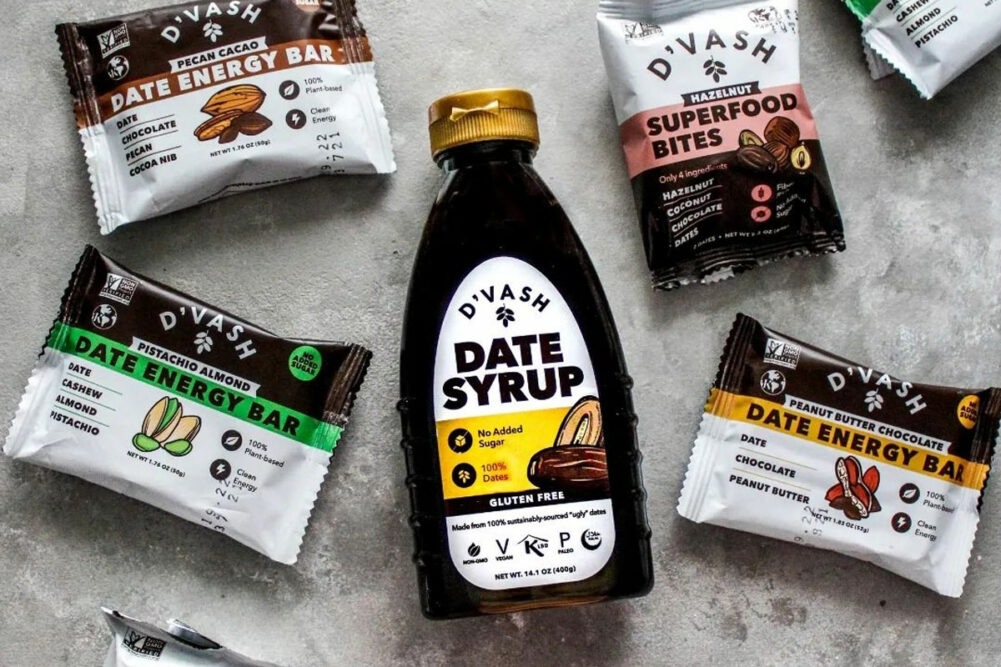LOS ANGELES — Dates are gaining popularity as a nutritious sweetener in snacks, spreads and sauces, packing twice the potassium, calcium and magnesium of maple syrup or honey, plus fiber and antioxidants. But six years ago, the stone fruit, a staple of Middle Eastern cuisines, was unfamiliar to many American consumers, said David Czinn, co-founder and president of D’vash Organics.
Back then, his best friend turned business partner, Brian Finkel, had discovered date syrup while working in the Middle East and suggested the pair start selling it stateside. Previously, Mr. Czinn founded and led Fruigees, a brand of squeezable organic fruit snacks, amassing connections and experience in the consumer packaged goods industry.
“He sent me a bottle, and I tried it and immediately thought it was awesome and started doing some research,” Mr. Czinn said. “We started really small at farmers markets and holiday markets all over Los Angeles. We were doing really well there, and it was really Whole Foods that was the first store that gave us a chance.”
Today, D’vash products are sold in 9,500 stores nationwide, including Whole Foods Market, Costco, Sam’s Club, Walmart, Sprouts Farmers Market, CVS and Safeway. In addition to bottled date syrup, the company markets a range of snack bars and bites formulated with a handful of ingredients, including dates, nuts and cocoa.
“We decided in the past two years to focus on building products around daily consumption,” Mr. Czinn said. “The syrup, people will use regularly, but you’ll probably only buy one bottle of syrup every couple of months, versus the bars and bites you can finish in one sitting.”
D’vash uses irregular or rejected dates in its recipes, reducing food waste through its supplier partnerships in the United Arab Emirates.
“Fortunately, there’s never a shortage of ugly dates, especially in that part of the world,” Mr. Czinn said. “In the Middle East they definitely place a preference on the jumbo medjools.”
D'vash also supplies date sugar, date paste and date syrup to packaged food companies and foodservice operators. The ingredients may be used in a broad range of applications, from plant-based meat alternatives to baked foods to coffee beverages, Mr. Czinn said.
“We’re hoping as time goes on, we really want to become the POM Wonderful of dates,” he added, referring to the pioneers of pomegranate juice as a trendy health ingredient. “A lot of people still don’t know what dates are, but I look at that as a tremendous opportunity because of how popular they are in the Mediterranean and Middle East.”
A number of competitors have emerged in recent years, offering syrups and snacks based on dates, Mr. Czinn acknowledged, citing brands such as Just Date, Date Lady and Joolies as examples. Still, he said, “I think there’s enough opportunity for everyone to really grow and win in this space, especially since it’s a relatively nascent category.”
Even now, US household penetration of dates sits at around 8%, according to executives at Coachella, Calif.-based Joolies, whose core product is whole, pitted medjool dates.
“I think it’s great that more brands are going into the date space because hopefully we can educate consumers as a whole together about the benefits of these products,” Mr. Czinn said. “We’ve got our work cut out for us.”




